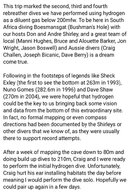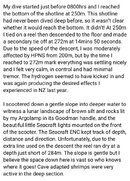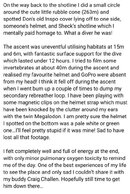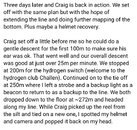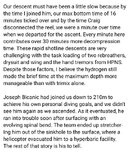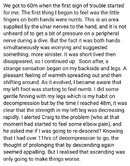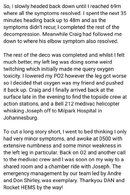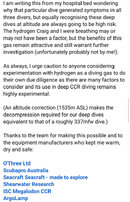Hello,
This subject has come up in a few threads elsewhere, but the 'official' (peer reviewed) report on the hydrogen dive performed by Richard Harris in the Pearse Resurgence last year was published yesterday in Diving and Hyperbaric Medicine Journal. I have attached the paper here.
Harris RJ, Challen CJ, Mitchell SJ. The first deep rebreather dive using hydrogen; case report. Diving Hyperb Med. 2024;54(1):69-72. doi: 10.28920/dhm54.1.69-72. PMID: 38507913.
Simon M
This subject has come up in a few threads elsewhere, but the 'official' (peer reviewed) report on the hydrogen dive performed by Richard Harris in the Pearse Resurgence last year was published yesterday in Diving and Hyperbaric Medicine Journal. I have attached the paper here.
Harris RJ, Challen CJ, Mitchell SJ. The first deep rebreather dive using hydrogen; case report. Diving Hyperb Med. 2024;54(1):69-72. doi: 10.28920/dhm54.1.69-72. PMID: 38507913.
Simon M



